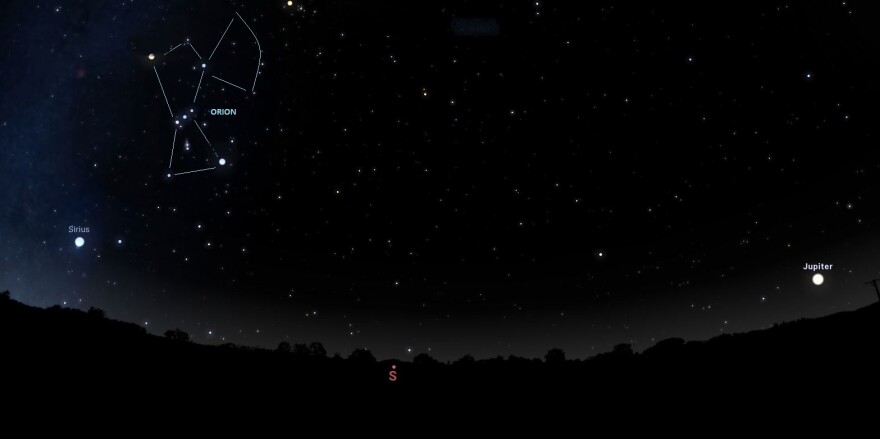Around 7 p.m. tonight, just after dusk, Sirius and Jupiter can provide a good example of difference in the way stars and planets appear to us. Astronomer Bob King explains that when light from outer space passes through our atmosphere, the different air masses in our atmosphere shift past each other and cause the light waves to shift back and forth a bit. One small pinpoint of light from a star will noticeably shimmy, or “twinkle.” A larger (apparent) mass of light from a planet will also have its light shift, but because there are so many points of light they cancel each other out and no twinkling is noticed. That said, Bob King has seen on occasion that a planet can twinkle a little bit when a planet is far enough away and the atmosphere causes enough disturbance of the light.
Also tonight, the International Space Station is passing overhead tonight from west to east. And Algol, the “Demon Star” will appear to dim tonight; it is a multiple star system in the constellation Perseus, and the larger, dimmer star will pass in front of the smaller, brighter star. This process will take several hours, but if you go out at different times several hours apart, a difference can be seen.







